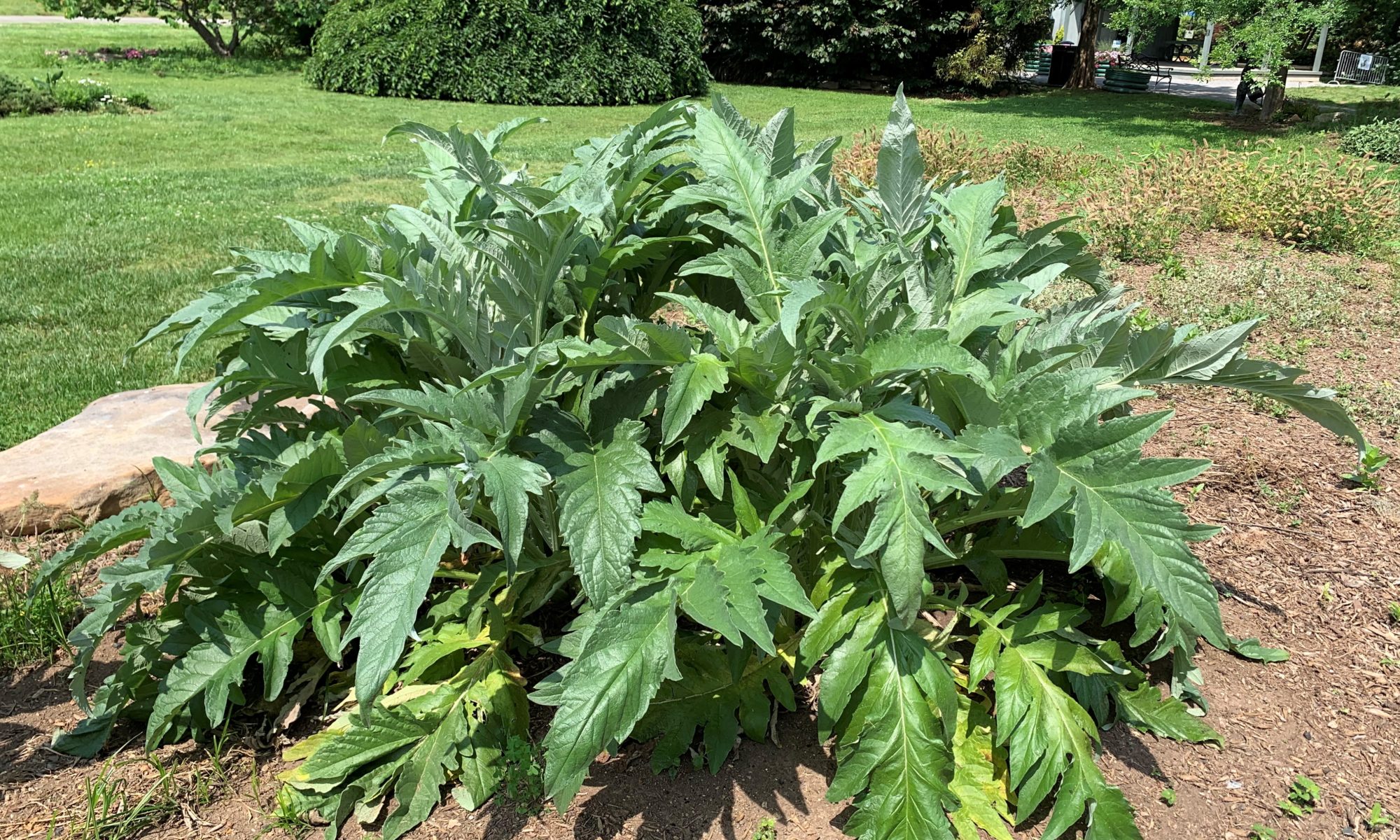
UT Gardens’ June Plant of the Month
Submitted by James Newburn, Interim Director of the UT Gardens
Sue Hamilton, retired director of the University of Tennessee Gardens, used to give a presentation on big, bold, and bodacious plants. Our featured plant this month would certainly warrant inclusion in this category. Cardoon (Cynara cardunculus) is a perennial plant in USDA zones 7 and 8, and has very structural, deeply incised, spiky blue-green or silvery foliage that makes a statement in the landscape.
Related to the artichoke and thistle, the flowers of cardoon are very similar, with large purple blooms produced on a sturdy stalk in summer. The plant itself can reach three to five feet tall, with the flower stalk growing up to six feet.
Cardoon is native to southern Europe and north Africa, and it is there where it originally became cultivated as a vegetable. Unlike its artichoke cousin, culinarily speaking, it is the leaves and more specifically the leaf stalks that are valued.
They are featured in many Moroccan, Italian, and Portuguese recipes. The lower stalks are often blanched by covering them with soil, so they don’t get sunlight. This keeps the leaves tender and less bitter. They are said to add a slightly mild artichoke or celery flavor to soups, salads, or served alone as a side dish.
Because of its large size, striking foliage texture and grayish color, cardoon makes an ideal specimen plant. It also can be planted in groups to form a giant thistle-like planting. They are suitable for the rock garden, a mixed perennial bed, dry bed, herb or vegetable garden and alone. They require full sun, in well-drained rich soil for the best performance.
Cardoon can be grown from seed, which sometimes won’t bloom the first season, or by division of off shoots from a mother plant. In winter, some of the foliage may survive above ground but most will die back and need to be cleaned up so as not to hold moisture and cause the crown to rot.
The UT Gardens includes plant collections located in Knoxville, Crossville and Jackson, Tennessee. Designated as the official botanical garden for the State of Tennessee, the UT Gardens are part of the UT Institute of Agriculture. The Gardens’ mission is to foster appreciation, education and stewardship of plants through garden displays, educational programs and research trials. The Gardens are open during all seasons and free to the public.
For questions or comments please contact: utgardens@utk.edu